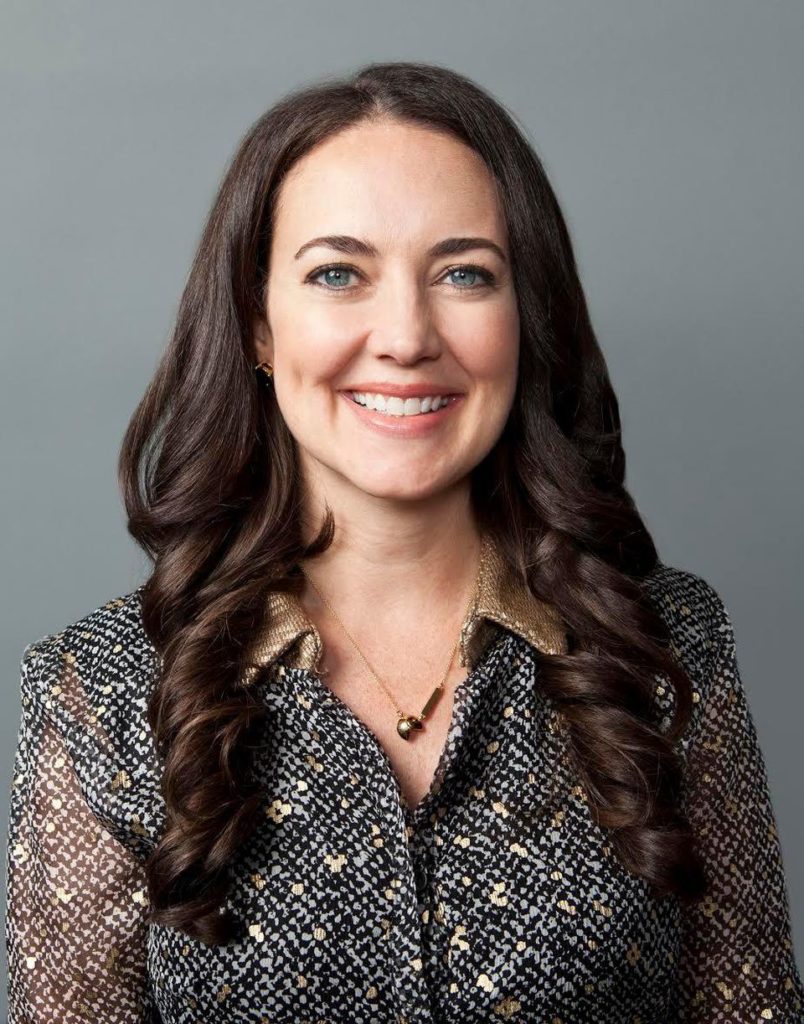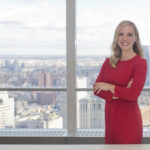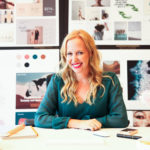Sarah Kauss started S’well, the original “hydration accessory” bottle company, in 2010 with $30,000 of her savings. Now S’well products are sold in more than 75 countries online and at high-end retailers. Revenues surpassed $100 million in 2016, up 10-fold from two years earlier, according to Forbes. Kauss owns 100% of S’well and has never taken venture capital funding because she wanted to stay true to S’well’s mission to rid the world of plastic bottles and her vision for her company. As founder and CEO, Kauss has ensured that S’well focuses on social good. S’well partners with UNICEF, (RED), American Forests and other charities. They hope to make eco-friendly reusable beautiful bottles the norm for families around the globe. We spoke about how a “sip of warm water” inspired the former accountant and global real estate developer and Harvard Business School graduate to start something swell.

What inspired you to start S’well? What was your career path?
While on vacation in Arizona, a sip of warm water and a mother-daughter conversation on career happiness led to my “aha” moment and the beginning of a business plan for S’well. I had been a user of a reusable water bottle since college, but my bottle of choice was more appropriate for camping than the conference room and looked a bit silly in important meetings. On that trip, I realized that there was a need for a bottle that was not only functional but also fashionable and that I could be the one to bring it to market.
I quit my job as a certified public accountant and a global real estate developer and took a leap of faith on a passion project in a completely new industry.
What has been the biggest challenge and, on the flip side, the biggest reward of starting S’well?
By far, the scariest part of starting S’well was taking the plunge into the unknown of entrepreneurship. Investing most of my life savings and 100% of my energy on designing a water bottle with a purpose was a huge gamble that paid off. It has been extremely rewarding bringing a fashionable water bottle to the market that helps people use less plastic while giving back to those in need.
S’well’s mission is to rid the world of plastic bottles. You’ve also partnered with charitable organizations such as the U.S. Fund for UNICEF and American Forests. Please tell me more about S’well’s charitable work.
When I started S’well, I knew right away that I wanted to create a product that would give back. Since 2015, S’well has given to the U.S. Fund for UNICEF to help provide clean water to the world’s most vulnerable children. Together with American Forests, we’ve also planted trees since 2013, as well as partnered with organizations like the Breast Cancer Research Foundation, No-Shave November, (RED) and Drink Up.
You own 100% of S’well and never took funding. How did you decide not to raise venture capital money?
It was important to stay true to the S’well mission and my personal vision for the company. By being self-funded, we’ve been able to build our brand on our own terms, being selective about the partnerships we create and the pace at which we grow. The flexibility of being able to turn down some of the largest big-box retailers in the country comes from not having investors telling me otherwise. There’s a great sense of accomplishment that comes with building your business on your own terms.
You saw Starbucks CEO Howard Schultz in Starbucks and told him about S’well. After that, S’well bottles went from being sold in some Starbucks locations to many. You had previously experienced the “Oprah Effect.” What were the ripple effects from those two encounters?
The bottles were featured in O Magazine very early on, which gave us the credibility we needed to open doors to more retailers. Our partnership with Starbucks helped solidify our brand on a global scale and expand quickly into new markets.
What advice do you have for other women who hope to start their own businesses?
Your idea doesn’t have to be perfect, but you have to believe in it. If you think it’s good, there are probably others out there who will value it as well. Also, be patient with yourself – the ideal business idea might not come right away. Make sure to take advantage of every career opportunity you can to pick up new skills and experiences that can feed your entrepreneurial passion.
What is a workday as Sarah like? Please walk me through a day!
Right now, if I’m not traveling, you’ll find me in the office going from meeting to meeting to meeting. I’m usually the first one in and the last one out so that I can knock items off my to-do list before and after the craziness of the day. Once I head home, I’ll finish up emails and make my journal entry for the day.
But it’s not all work and no play. Whenever possible, I try to be in the office on Fridays. We cater lunch, throw happy hours and always have clients coming in and out, which creates a high-energy, fun environment to catch up with everyone and carry you into the weekend.
And as a partner for Arianna Huffington’s Thrive Global, I’m starting to make little changes in my daily routine – like putting my phone and myself to bed an hour earlier – to get more sleep and work toward achieving more balance.
What are your responsibilities as founder and CEO of S’well?
I’m still very involved with most aspects of the business – everything from sales and operations to design and partnerships. But I have put a team of seasoned professionals in place who allows me to stay connected while focusing on bigger picture growth strategies and the overall evolution of the brand.
What are the most important characteristics someone needs to have to be successful in your role?
Awareness and trust. Truly, I’ve found that both allow you to be more effective. Being aware of the critical moments that impact your business – both good and bad – helps you learn, pivot and evolve at a faster pace. Trusting in yourself and your team makes the decision-making and every day running of the organization easier to manage.
What are three characteristics you look for when you’re hiring a new team member?
At S’well, there are six core competencies that we consider essential to being a part of the team. These include having an entrepreneurial mindset, being innately clever, dedicated to continuous improvement, working well with others, being a good communicator and exhibiting personal leadership.
What are the most important skills for doing your job and how did you develop them?
It comes back to being aware and paying attention to the details. Anyone who knows me knows that journaling is an important daily ritual. Since I first started the company, I’ve been journaling daily on events, experiences, lessons and learnings. It not only helps me be more aware of what’s working but also understand where we need to make changes.
What’s the biggest lesson you learned at work and how did you learn it?
Don’t be afraid to ask for help. Looking back on the journey of my business, there are so many people who have helped me along the way. But they could have helped me sooner if I had only asked.
What is one thing that you wish you had known when you were starting out your career?
Talk to everyone about your idea. I wanted to wait for everything to be perfect before I brought the idea of S’well out in the world. But what I realized after the fact was that there was so much to learn from talking to people about it.
What is the best advice you’ve ever received?
Jo Marie Dancik, my first boss at Ernst & Young, taught me how to make my career my own. From the start, she encouraged me to present my own work and select the clients and projects to work on that interested me the most. Her advice helped build my confidence early on and has led to many life-changing experiences through the years.
What is your business advice for other young professional women?
Don’t wait for your idea to be fully baked before dedicating time to bringing your idea to life. Women will ask me whether they should keep working while building their company or quit and go all in on their idea. My advice is to dedicate as much time and energy as you can to making your idea a reality. Otherwise, you may find that time and your idea have passed you by.































